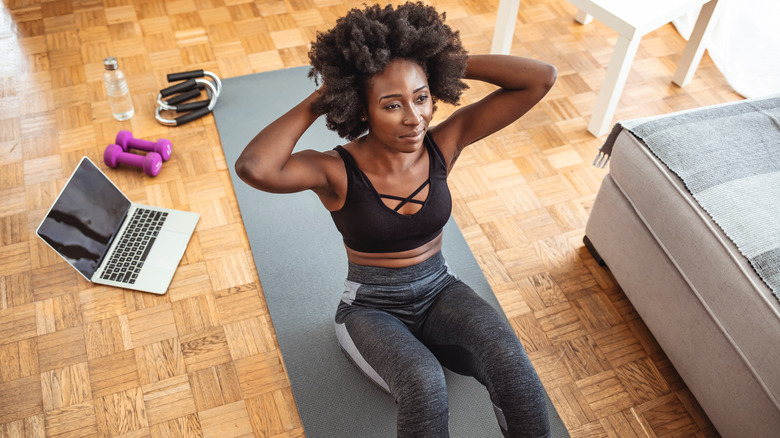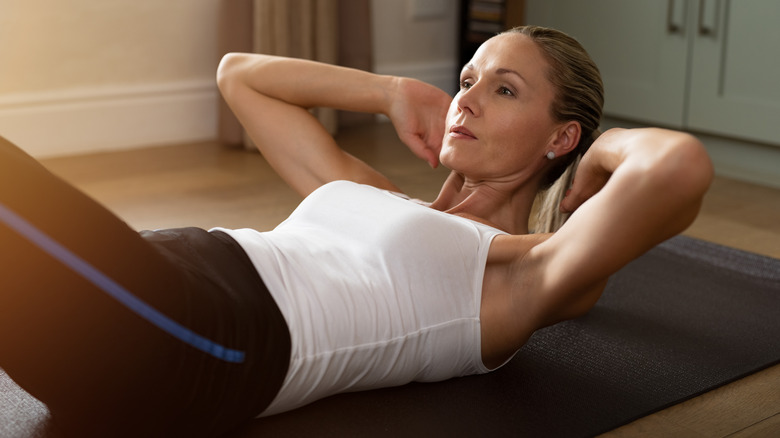Sit-Ups Vs. Crunches: What's The Better Workout?
Having a strong core isn't just about having a six-pack, though that can be a nice side effect. When you've strengthened the muscles of your torso and pelvis, aka your core, according to the Mayo Clinic, you've trained those muscles to work together, which results in overall better stability and balance. That means that pretty much all other physical activities are easier to do when you have a strong core. While there are plenty of variations of core exercises, the two that probably come most immediately to mind are sit-ups or crunches. They're both great options, and both have their celebrity fans.
Hailee Steinfeld told Kelly Clarkson on "The Kelly Clarkson Show" that she does 3,000 crunches per day. And Maria Menounos swears by daily sit-ups. "I have this one little routine that anyone can get through," she explained to Health. "Fifty sit-ups: 20 straight up and down, 10 to the side, 10 to the other side, another 10 straight up and down."
But while sit-ups and crunches may seem like basically the same thing, they're not. Here are the important distinctions.
Don't do sit-ups if you have back trouble
In a basic crunch, you lift your shoulders and shoulder blades off the floor by contracting your abdominal muscles, and they specifically target the rectus abdominis muscles — the six pack (from Very Well Fit). Modifications and variations of the basic crunch may work more muscles, according to Healthline, including your obliques and transverse abdominis. But overall, crunches are a more isolated exercise compared to the sit-up.
"The main difference between the two," Katharine Glazer, CPT, told Women's Health, "is that unlike a sit-up, in a crunch, the lower back never leaves the floor." So for a sit-up, it starts the same way as a crunch, but instead of lowering back down to the ground after your shoulder blades have lifted, you continue up until your entire torso is off the ground. Sit-ups work the rectus abdominis as well as the hip flexors and muscles in your neck, back, and chest (from Healthline).
It seems like you'd want to go with sit-ups, since they work more muscles, but sit-ups can be downright dangerous if you have back or neck problems. If you aren't able to hold your back straight, sit-ups end up pushing your curved spine towards the floor, and if you have tight hip flexors, they can cause strain on your lower back (via Harvard Health Publishing).
Every body is different, so choose your sit-up or crunch based on what your body can safely do.

